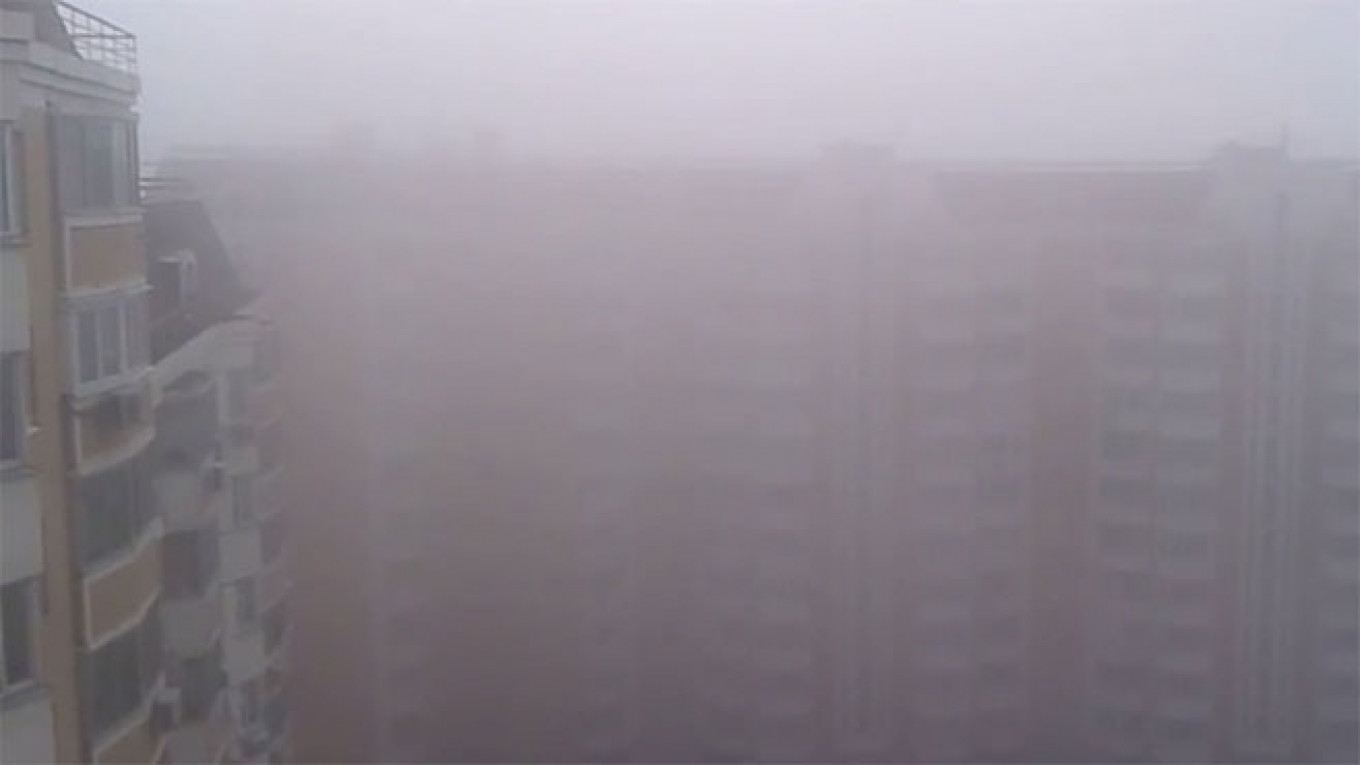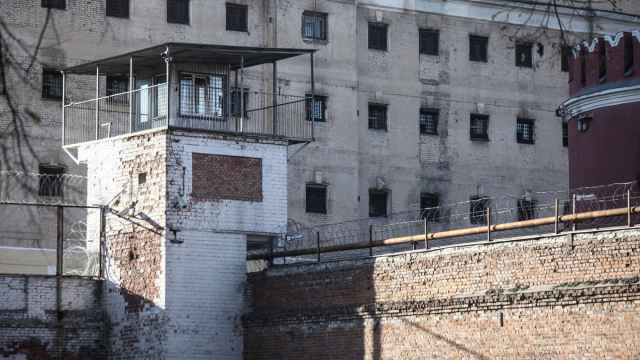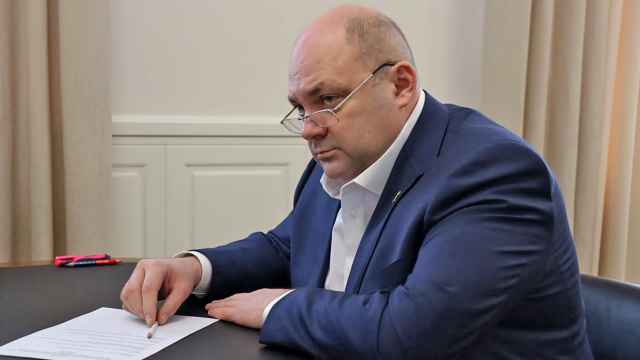Russian emergency services on Monday warned Muscovites to stay indoors and seal off access to fresh air amid reports of toxic chemical fumes permeating the city.
Air in southwestern Moscow contained 2.5 times the maximum permissible levels of styrene, a toxic and mutagenic chemical used for polymer production, according to city-run environmental monitoring watchdog Mosekomonitoring.
A strong smell of hydrogen sulfide was also reported citywide, including at The Moscow Times headquarters at Marina Roshcha. The substance has an aroma reminiscent of rotting eggs.
"Head hurts, feel sick, eyes watering," Natalia Kim, a resident of the styrene-hit Kozhukhovo district, wrote on Facebook.
Other locals traded advice in comments, suggestions including drinking a lot of milk and activated carbon, covering things with wet towels, and either ringing up the district authorities or fleeing town.
"Is it just me smelling sulfur, or has a portal to hell opened in Moscow?" Twitter user @ping_f wrote, a reaction typical of many Moscow denizens.
No deaths or mass poisonings were reported as of Monday evening, City Hall said, Interfax reported.
Media reports speculated about an accident at a local chemical plant, though officials failed to offer a cohesive explanation for the stink attack.
The Emergency Situations Ministry, which issued the warning to stay indoors, blamed it on an accident at a Gazpromneft refinery in southeastern Moscow, Interfax reported.
But the refinery's owner, state-run monopoly Gazprom, denied any incidents at the facility, according to Interfax.
Aeration plants in the city's southeast may have been the culprits, the TASS news agency reported, citing a law enforcement source.
"We're taking air samples across Moscow," an Emergency Ministry spokesman told Gazeta.ru. "We'll let you know as soon as we know something."
"I believe the oilmen have messed up, and the wind's blowing from them. I think it will blow over by the morning, and everybody will calm down," Lev Fyodorov of interest group For Chemical Safety told Slon.ru.
Southeastern Moscow hosts many industrial enterprises, including the oil refinery and numerous chemical plants.
Locals have campaigned against alleged air pollution in the district for years, but state watchdogs denied all reports about excessive levels of chemicals in the air, Gazeta.ru said.
While it was not immediately clear what was causing the odor, social media users were quick to poke fun at the unpleasant smell.
"Do you [know] what smells in Moscow? It's not sulfur, but the ruble dying," a Twitter user wrote in reference to the recent drop in the value of Russia's currency compared with the dollar and euro.
"Any small gas masks for kittens?" wrote another, more practical user.
The U.S. Embassy issued a warning Monday afternoon urging U.S. citizens to remain indoors, close windows and doors, and turn off heating and cooling systems in order to reduce the flow of outside air. According to the statement, “Multiple sources are reporting an industrial accident in Kapotnaya — in the southeast suburbs of Moscow — resulting in a leak of hydrogen sulfide, commonly associated with sewer gas. There is no official confirmation of this event at this time.”
Contact the authors at a.eremenko@imedia.ru and newsreporter@imedia.ru
A Message from The Moscow Times:
Dear readers,
We are facing unprecedented challenges. Russia's Prosecutor General's Office has designated The Moscow Times as an "undesirable" organization, criminalizing our work and putting our staff at risk of prosecution. This follows our earlier unjust labeling as a "foreign agent."
These actions are direct attempts to silence independent journalism in Russia. The authorities claim our work "discredits the decisions of the Russian leadership." We see things differently: we strive to provide accurate, unbiased reporting on Russia.
We, the journalists of The Moscow Times, refuse to be silenced. But to continue our work, we need your help.
Your support, no matter how small, makes a world of difference. If you can, please support us monthly starting from just $2. It's quick to set up, and every contribution makes a significant impact.
By supporting The Moscow Times, you're defending open, independent journalism in the face of repression. Thank you for standing with us.
Remind me later.







